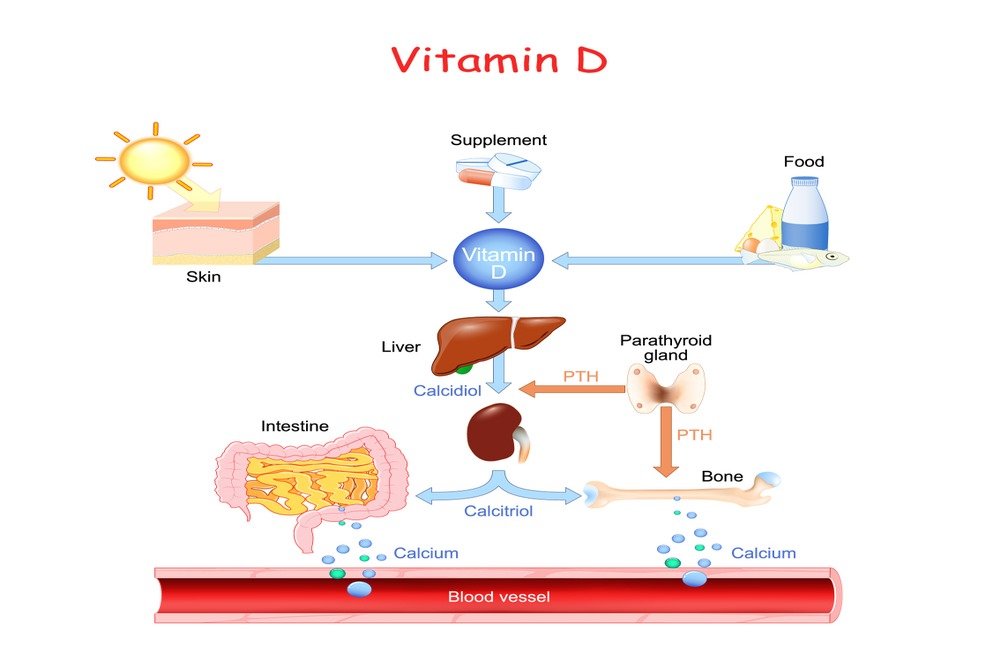Vitamin D Function

Vitamin D plays an important role in the human body to regulate and maintain a number of processes like bone regulation, heart health, and lower blood pressure. Vitamin D has the following important functions:
Calcium absorption and bone health
Vitamin D helps in the promotion of calcium absorption in the gut and regulates the serum calcium levels. Vitamin D also plays a crucial role in regulating the phosphorus and calcium ratio in blood circulation to ensure normal bone mineralization. The regulation of serum calcium and phosphorus levels are very integral to maintain normal bone mineralization and prevent bone softening. In the longer run, vitamin D functions greatly in preventing hypocalcemic tetany which causes cramps, spasms, and involuntary contraction of muscles. The enhanced calcium absorption due to vitamin D helps to for and regulate strong bones. Recent researches also indicate that adequate intake of vitamin D might provide protection and decline the chance of an individual to get cancer, hypertension, osteoporosis, and various autoimmune diseases.
